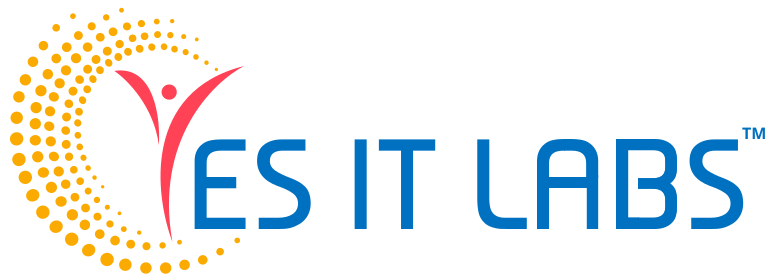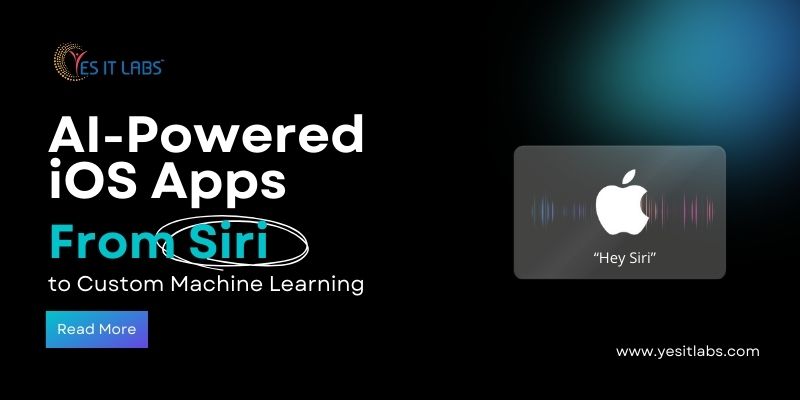As artificial intelligence (AI) continues to reshape the digital landscape, iOS developers are at the forefront of creating intelligent, intuitive apps that respond to users’ needs in real-time. Apple’s investment in AI tools such as Core ML and SiriKit has unlocked new possibilities, enabling developers to build apps that feel both personal and contextually aware. This article explores how AI, particularly through Siri and machine learning frameworks, is changing the face of iOS app development.
1. Siri’s Transformation with Apple Intelligence
Since its introduction in 2011, Siri has transformed from a basic voice assistant to a sophisticated, AI-driven platform. With Apple Intelligence, Siri is gaining capabilities that move it closer to a true virtual companion.
What Apple Intelligence Brings to Siri:
- Typing to Siri: One of the most user-friendly additions is the ability to type queries instead of speaking them. This not only improves accessibility but also enhances usability in situations where speaking aloud isn’t convenient, such as in quiet environments or when privacy is a concern.
- Natural Conversations: Siri has made significant strides in understanding and generating natural language. Apple has trained Siri using advanced natural language processing (NLP) models, which enables it to maintain context across multiple interactions. For instance, you can ask follow-up questions without restating the original query. While Siri occasionally misinterprets complex requests, this conversational improvement makes interacting with it feel more fluid and human-like.
- Custom Wake Words: For years, users were restricted to the default wake phrase “Hey Siri.” Apple now offers customization, allowing you to set your own trigger word, making Siri feel more personalized to your preferences.
- Developer Integration with SiriKit: SiriKit, Apple’s framework for integrating Siri functionality into third-party apps, has expanded with Apple Intelligence. As a developer, you can now tap into Siri’s intelligence to add voice-driven experiences to your apps, such as voice commands for ordering food, booking rides, or controlling smart home devices. The ability to create shortcuts using Shortcuts API further enhances user interaction by allowing automation of complex tasks through simple voice triggers.
- UI Overhaul: Siri’s interface has undergone a subtle, yet impactful, redesign. Rather than occupying the entire screen with the familiar orb at the bottom, Siri now integrates more seamlessly into the UI, illuminating the edges of your device without blocking your view. This design change keeps Siri visually present without interrupting your workflow.
Rollout Timeline:
Apple is releasing these updates in stages. Initially, only U.S. English users will experience the full suite of new Siri features, but localized versions in Chinese, French, Japanese, Spanish, and more will follow.
2. How Siri Works Behind the Scenes
For developers interested in AI and machine learning, understanding how Siri operates behind the scenes provides valuable insights into building similar intelligent features within your own apps.
- Deep Neural Networks (DNN): Siri’s voice recognition and query processing rely heavily on DNNs. These neural networks are trained on vast datasets, enabling Siri to identify speech patterns, process queries, and generate responses with a high degree of accuracy. Apple’s use of on-device processing means these models run locally on users’ devices, ensuring faster response times while keeping sensitive data private.
- On-Device Machine Learning: Apple’s commitment to privacy is evident in its architecture. Unlike many voice assistants that rely on cloud-based processing, Siri performs most of its functions on-device, significantly reducing data sent to Apple’s servers. This also allows developers to leverage the Neural Engine in Apple’s A-series chips, which accelerates machine learning tasks and delivers smoother performance in AI-heavy applications.
- Contextual Awareness: Siri’s contextual understanding is continuously improving. With Apple Intelligence, Siri doesn’t just respond to immediate commands; it can understand references to past interactions, recent media, and even your location. For example, you can ask, “What’s the weather like at my meeting location tomorrow?” and Siri can cross-reference your calendar with weather data to give a relevant answer. Developers can integrate similar functionality in their apps using Core ML’s context-awareness capabilities, allowing them to deliver smarter, personalized experiences.
For businesses looking to leverage AI in app development, partnering with an experienced iOS mobile app development company can significantly streamline the process of integrating AI-driven features like Siri and Core ML into apps. Such companies bring expertise and industry know-how that can accelerate development timelines while ensuring optimal performance.
3. Beyond Siri: Custom Machine Learning in iOS Apps
AI’s potential on iOS extends far beyond Siri. Core ML, Apple’s machine learning framework, enables developers to embed powerful AI models directly into their apps, unlocking the ability to create features that were previously complex or impossible to achieve.
Key AI Tools for iOS Developers:
- Core ML 4: The latest version of Core ML makes integrating machine learning into apps easier than ever. With support for on-device model personalization, developers can now train models locally on user data without it ever leaving the device, preserving privacy while offering tailored experiences. Core ML also allows dynamic model updates, meaning your app can continue learning and adapting after the initial release.
- Real-World Use Cases: For example, image recognition models can be used in photo-editing apps to automatically enhance images or identify objects. Natural language processing (NLP) models power chatbots and translation tools, while recommendation systems, like those in music or video streaming apps, use machine learning to suggest content based on individual preferences.
- Personalization and On-Device Learning: Apps are increasingly expected to offer personalized experiences. With Core ML, developers can build models that continuously learn from user behavior—whether that’s curating music playlists, adjusting workout routines, or refining shopping recommendations. This on-device learning is more than just convenient; it’s central to the user experience in apps like Apple Fitness+, where data such as heart rate and activity levels are continuously analyzed to provide real-time feedback and suggestions.
- Health and Fitness Applications: One of the standout uses of machine learning on iOS is in health and fitness. Using frameworks like HealthKit and Core ML, developers can create apps that track health data (e.g., heart rate, steps) and analyze it to deliver insights. MyFitnessPal, for example, uses machine learning to recommend calorie intake and exercise routines, adapting to users’ individual goals over time.
- Natural Language Processing (NLP): NLP models are becoming increasingly sophisticated, allowing developers to build apps with enhanced text recognition, sentiment analysis, and language translation features. For instance, apps like Google Translate leverage neural machine translation models to provide highly accurate translations in real-time, breaking down language barriers on the go.
When building complex AI-driven apps, it’s essential to follow best practices and established design patterns in iOS. These patterns, such as Model-View-Controller (MVC) and Coordinator, provide developers with structured approaches to architecting scalable and maintainable applications.
4. The Future of AI in iOS Apps
Looking ahead, AI will play an even larger role in iOS app development, with several exciting trends already emerging.
Emerging Trends in AI for iOS:
- Augmented Reality (AR): Apple’s ARKit integrates computer vision with machine learning to deliver immersive AR experiences. By combining real-time environmental data with AI, developers can create apps that overlay digital content in the real world with incredible precision. Expect more innovative uses of AR in fields like gaming, education, and retail.
- Privacy-Focused AI: Apple is leading the industry in creating AI technologies that prioritize privacy. With on-device processing and the ability to personalize machine learning models locally, developers can provide intelligent, data-driven features without compromising user privacy. This trend will only grow as users become more conscious of how their data is handled.
- Voice Assistants Beyond Siri: While Siri dominates Apple’s voice assistant landscape, Apple’s AI frameworks allow developers to create third-party voice assistants tailored to specific apps. These assistants could provide more specialized functionality, particularly in areas like customer service, healthcare, and IoT devices.
For businesses planning to launch AI-powered applications or expand existing solutions, it’s critical to hire iOS app developers with expertise in AI and machine learning. These developers will be familiar with Apple’s latest frameworks and design best practices, ensuring high-performance and privacy-compliant applications.
Conclusion
AI-powered iOS apps are driving the next wave of innovation, and Apple’s focus on privacy, on-device processing, and deep integration with Core ML and SiriKit gives developers powerful tools to build the apps of tomorrow. Whether you’re enhancing Siri’s capabilities, developing a personalized app, or leveraging AR for immersive experiences, AI is the engine behind it all. For developers and businesses alike, this is a golden opportunity to push the boundaries of what’s possible, creating smarter, more intuitive apps that anticipate users’ needs.








